Mid-Summer Check in from the Aquatic Sciences Lab
The calendar turns to August and we take a breath to reflect on a busy spring and summer! The heat and gnats have been ever present, the flows have been dropping, and the Jones Center never sleeps! Here’s what we’ve been up to the first part of the summer and what’s planned for the rest […]
How longleaf pine patches shape fire: New research and podcast interview on Fire Ecology Chats
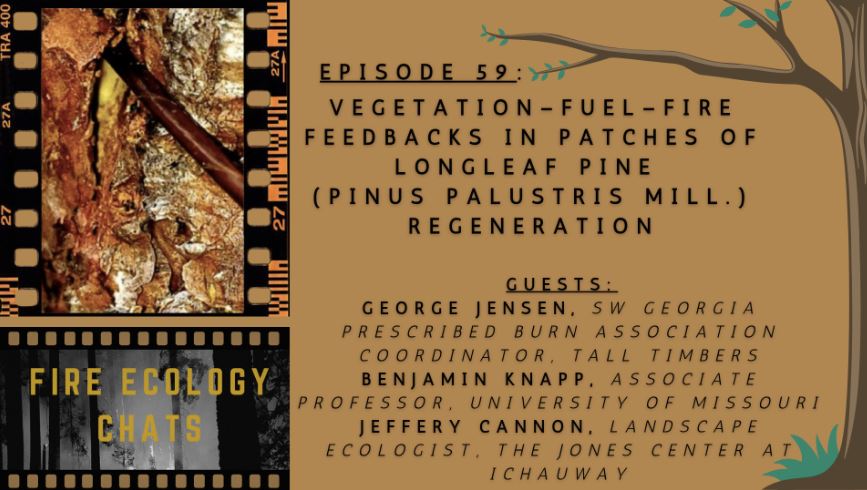
George Jensen, an MS student in our lab, recently led a study published in the journal Fire Ecology exploring how dense patches of regenerating longleaf pine influence fuel structure and fire behavior. We joined Bob Keane on the Fire Ecology Chats podcast to discuss the paper, answer questions, and talk about what these feedbacks mean for forest restoration. Tune in to the episode to hear more about how fire, fuels, and vegetation interact in the longleaf pine ecosystem!
Sierra Magazine highlights forest impacts from Helene and lab’s ongoing research on forest resilience
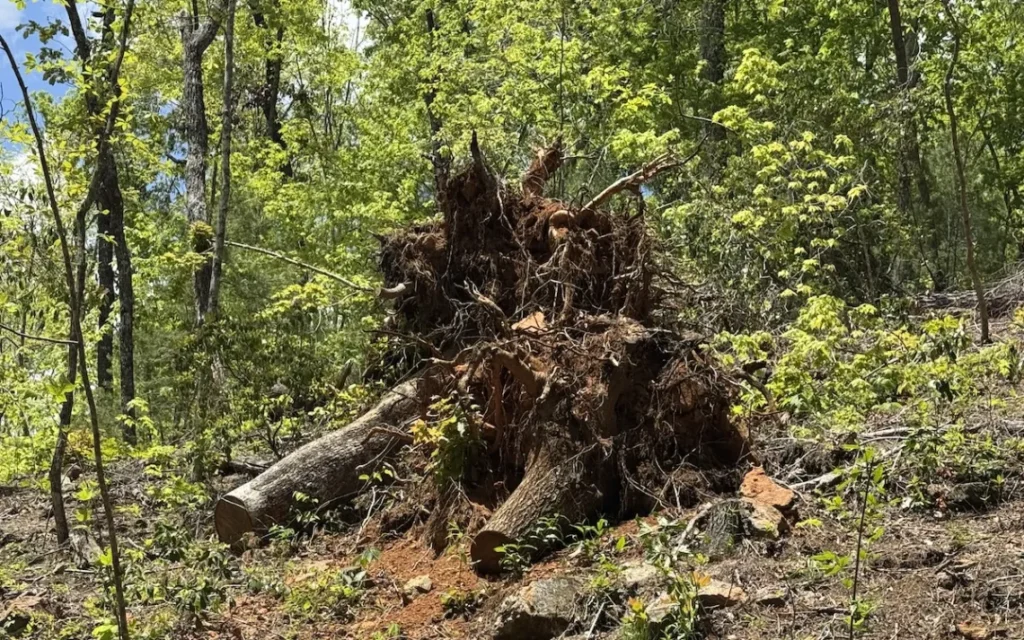
A new Sierra article explores the long-term impacts of Hurricane Helene on Western North Carolina’s forests, including tree loss, fire risk, and shifting species composition. Our lab contributed insight into how storm damage affects forest resilience and recovery. Understanding these dynamics is key to guiding restoration efforts and preparing for more frequent, intense storms in the region.
New video highlights lab’s research on water benefits from longleaf pine restoration
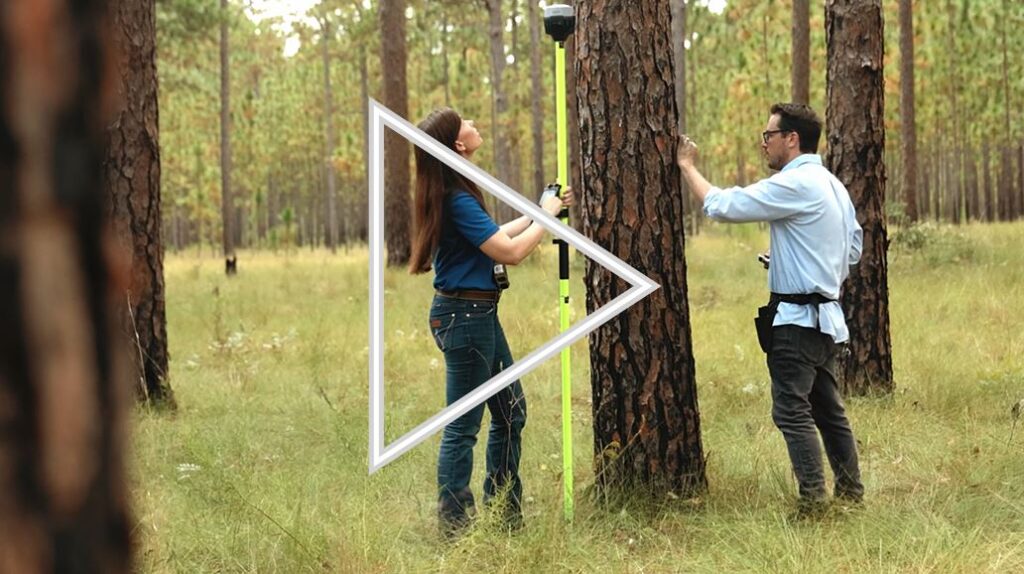
Research from the Landscape Ecology and Ecohydrology labs shows shows that restoring open longleaf pine woodlands can boost streamflow—especially during drought. Watersheds with more longleaf cover had up to 92% higher flows in dry years, making this iconic ecosystem a potential ally in the fight against water scarcity. Watch the short video to see how climate-smart forest management can help sustain both forests and freshwater.
New study: Advancing hurricane ecology in endangered systems

Longleaf pine savannas are iconic and endangered ecosystems along the Gulf and Atlantic coasts, but intensifying hurricanes pose a growing threat to their persistence. Our team reviewed storm impacts across the longleaf range and found that 85% of remaining habitat experiences tropical storm-force winds every six years. We identified key risk factors—like fire, insects, and salvage logging—that can compound management challenges and delay recovery. This study, published in the journal BioScience highlights the need for climate-informed management strategies that build resilience in the face of increasingly frequent storms.
New study: Mitigating hurricane damage in pecan
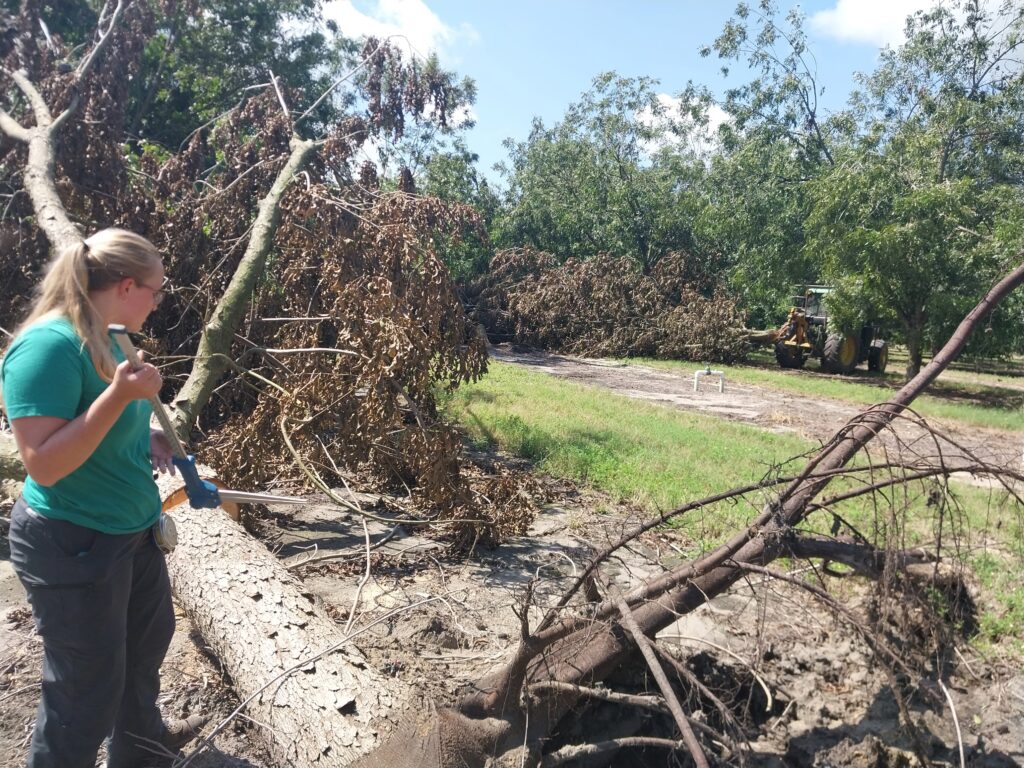
Pecan orchards are a vital part of southern Georgia’s working landscapes, but recent hurricanes have caused severe losses to growers. In a post-storm field study, our lab surveyed over 1,100 trees across 11 orchards following Hurricane Idalia to understand patterns of wind damage. We found that intermediate-sized trees were most vulnerable and that orchard age structure plays a key role in storm resilience. These findings provide a foundation for climate-smart practices that can reduce risk and improve long-term sustainability.
Now hiring: Landscape Ecology Seasonal Technician
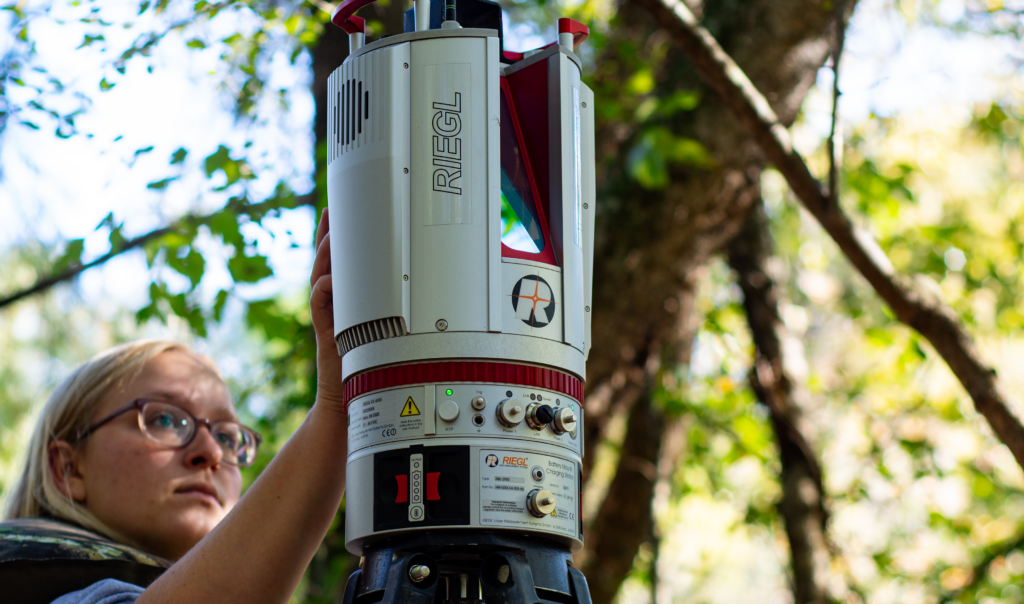
We are seeking motivated individuals to apply for a Seasonal Technician position to contribute to research on restoration and hurricane ecology of longleaf pine woodlands. The successful applicant will assist with field data collection on forest restoration research, and collection and processing of terretrial lidar data. The position will work in a team setting with staff of the Landscape Ecology lab at the Jones Center at Ichauway. Applications reviewed immediately.
Extracting Stand Attributes from Aerial LiDAR Data

I was tasked with using aerial LiDAR to monitor changes in forest structure in a 30-year-old longleaf pine stand after thinning. After completing our lab’s online tutorials for getting started with LiDAR, I was able to develop an R script for estimating tree- and stand-level attributes. Follow along on this tutorial to see how simple remote sensing can be!
Winter Recap from the Aquatic Sciences Lab
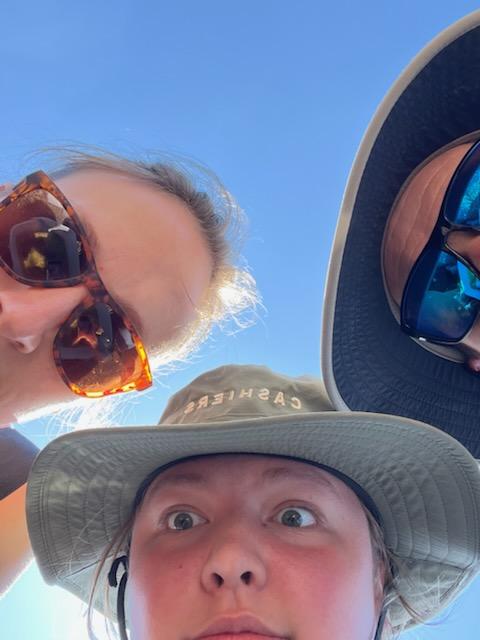
The Aquatic Sciences lab never sleeps! As spring starts to look like summer, we’d take a quick look back at a busy winter and spring. New research from the lab Two new papers from the lab, both first author works from Nick’s PhD and postdoc work. Marzolf NS, Meza-Salazar AM, Hidalgo M, et al. (2025) […]
New study: Patchy longleaf pine regeneration changes fuels and fire behavior
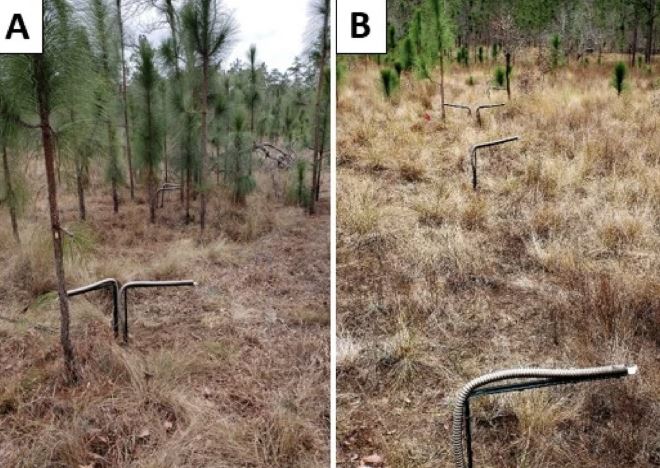
Longleaf pine ecosystems depend on frequent fire which changes competitive and growth dynamics of the ecosystem. However, fire behavior is complex and driven by complex feedbacks between fire effects, fuels, and vegetation. In an intensive field study, we investigated how dense patches of longleaf pine regeneration can change fuels and fire behavior compared to regenerating saplings occuring singly. We found that regeneration have altered fuels, and often reduced fire behavior in a manner that likely shapes spatial dynamics in the ecosystem